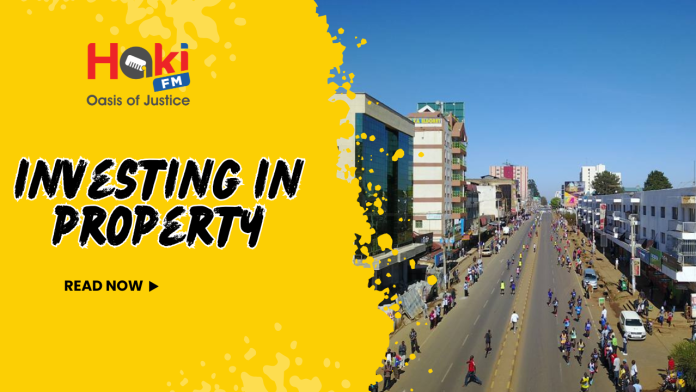Kenya’s real estate market has witnessed impressive growth over the past decade, attracting local and international investors seeking long-term value. Whether you’re a first-time buyer, diaspora investor, or looking to diversify your portfolio, the property sector in Kenya presents both opportunities and legal considerations.
There are so many areas you can invest in like; apartments, gated communities, affordable housing units, office spaces, malls, industrial parks and land particularly in satellite town satellite towns such as Kitengela, Ruiru, Kangundo road, Thika, and Ngong. You can also invest in holiday homes and Airbnb, this has grown in popularity in Nairobi, at the coast and tourist destinations like Naivasha and Nanyuki.
As strong demand for housing continues to grow, investing in property is promising fruitful return on investment. Kenya continues to face a housing deficit estimated at over 200,000 units per year. Urban centers like Nairobi, Mombasa, Kisumu, and Nakuru are especially attractive due to rapid population growth and increased rural-urban migration.
Major infrastructural developments; from the Nairobi Expressway to the Standard Gauge Railway (SGR) are opening up new investment zones and increasing land value in emerging areas.
While the opportunities are vast, it is crucial to navigate the legal landscape carefully. Always verify land ownership at the Ministry of Lands or via the Ardhi sasa platform. This helps uncover any encumbrances or disputes on the property.
Before purchasing any property, engage a licensed advocate to draft or review your sale agreement, conduct due diligence, and facilitate land transfer. Avoid relying solely on brokers or unlicensed agents.
Prior to buying land, bear in mind the land tenure, Kenya operates under leasehold and freehold systems. Freehold gives the owner complete ownership while Leasehold gives ownership for a specified period (typically 99 or 999 years), with possible renewal.
Foreigners and foreign companies cannot own freehold land in Kenya but can lease land for up to 99 years although joint ventures with locals are common workarounds.
Upon purchasing property, you’re required to pay stamp duty which is usually 2–4% of the property’s value plus capital gains tax if you’re selling. Ensure you keep accurate records for compliance with the Kenya Revenue Authority (KRA).
There are existing challenges while purchasing land like; land fraud, double sales, lack of approved plans or permits, unregulated real estate agents and speculative buying without proper valuation.
To avoid these risks you need to work with professionals like lawyers, valuers, and registered surveyors, insist on official receipts and written agreements, visit the property personally before committing, use escrow services or reputable financial institutions for payments and always stay updated on new zoning laws and county regulations.
Real estate remains one of the most rewarding investment options in Kenya but only when approached with caution, knowledge, and legal support. At Haki FM oasis of Justice, we encourage responsible investing and aim to keep you informed on all legal aspects of property ownership.
For more legal insights and expert interviews, tune in every Thursday to our Property Law & Investment Hour from 9:00 – 10:00 a.m. STREAMING ON http://www.hakifm.or.ke


